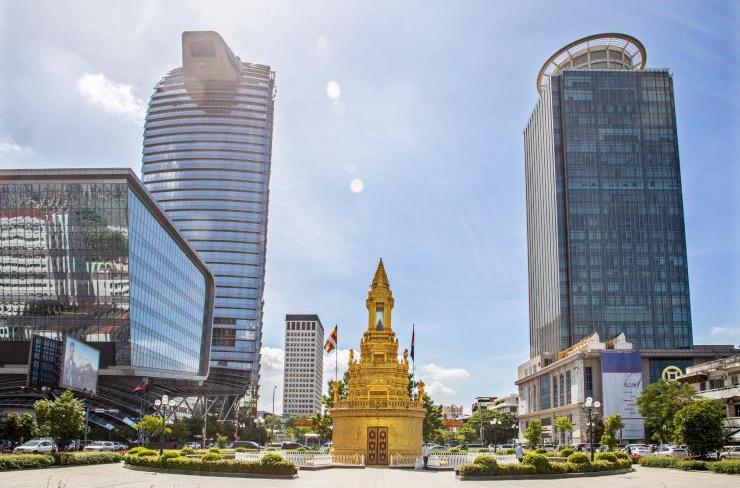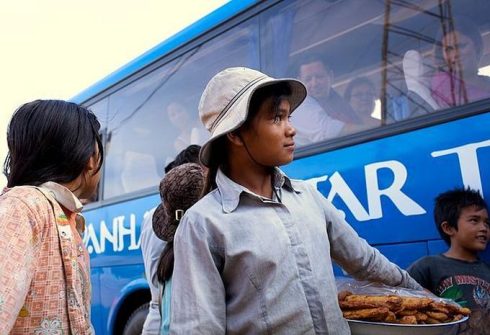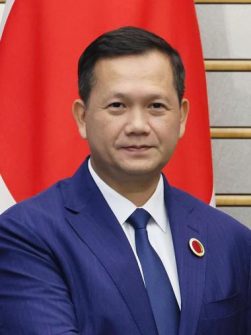Opening up to the world.

The onset of industrialization brought about the brutal decomposition of rural Cambodian families since poverty and indebtedness led to the emigration of an unskilled workforce from the countryside especially to the capital, Phnom Penh.
The first clothing factories started up here and were followed by many others. They are run by Chinese, South Korean, Bangladeshi and Singaporean businessmen attracted by the country’s low labour costs, which compensate for the same unskilled workers. The establishment of these factories have had a significant impact on the country’s economy but the social impact is negative, due to lack of employee training. Another area which has experienced considerable growth of unskilled labour, is the construction sector.
The notable development of tourism at the Angkor site offers employment opportunities to a large number of hotel and restaurant staff. However, although most of these employees have gone to school they can barely read and write.

Many young people are unemployed and unskilled. CC BY-SA 2.0/ mark Sebastian
Most of them are young, some of them started working as minors to help their parents in the villages because families are, more often than not, heavily in debt. This situation is unprecedented in Cambodia because, culturally, parents take care of their children until marriage. However, in the last decade, children, especially girls, have gone to work outside the family circle thus becoming the primary breadwinners of their families and parents.They become independent and make choices which the family group cannot control, something unheard of in the Cambodian tradition. Another new and disturbing phenomenon is emigration.The government has not really taken stock of these situations and their consequences for the economic development of the country in the medium and long term.
The global Covid epidemic caused a brutal and forced contraction of the Cambodian economy. Vaccination campaigns and attempts to revive the global economy have not led to a return to the growth the government had hoped for. Unemployment rates are high as are the number of unskilled workers. Cambodians’ desire to be part of the global community is stronger than ever, after the disaster created by the The Khmer Rouge’s Cultural Revolution, which almost annihilated the country, but it did not take away the people’s will to live. Torn between tradition and modernity, between nationalism and openness to a world without economic and cultural borders, Cambodians still want to get an education, be consumers and enjoy life.

Hun Manet, Cambodian PM since 2023. Photo: Office of Prime Minister
Another big challenge for the government is the enormous interest people show for social media, yet more proof of the desire to be part of a modern world. Through political action and management of the economy, the government must allow everyone to live with dignity according to their needs and aspirations, accepting a plurality of opinions.
Elections last July were overwhelmingly won by Hun Manet who became new prime minister, taking over from his father Hun Sen who had governed since the end of the war, for forty years. In the Land of Smiles, however, Hun Sen’s shadow still hovers noticeably in the background, opposition (such as the Party of Glowing Candles) is systematically dissolved. China, for its part, is increasingly omnipresent in all respects, which will certainly pose problems in the future (debt, sovereignty, etc.), but this allows Cambodia to enjoy a degree of independence from European and American demands regarding human rights.
Everything is interconnected! The country is getting richer, and now has a real middle class, but there are many people left behind by economic growth. (Open Photo: Phnom Penh city.123rf)
(F-X. D.)



